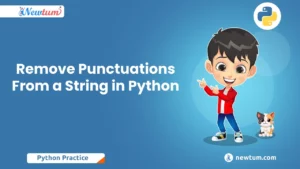Poorly documented code often leads to confusion, errors, and time-consuming debugging. Using comments in C effectively can transform your code into a clear, maintainable, and collaborative masterpiece. In this blog, discover the types of comments, best practices, and practical examples to ensure your C programs are always easy to understand.
What Are Comments in C?
Comments in C are text annotations added to the code, which are completely ignored by the compiler. They exist solely for human readers to improve code clarity and understanding.
Types of Comments in C:
- Single-line comments: Begin with
//and extend to the end of the line.- Example:
// This is a single-line comment int x = 10; // Assign 10 to x
- Example:
- Multi-line comments: Enclosed within
/* */and can span multiple lines.- Example:
/* This is a multi-line comment used to explain complex logic */ int sum = a + b;
- Example:
Purpose of Comments
Comments help:
- Clarify code functionality.
- Explain complex or non-intuitive logic.
- Leave notes for future developers or collaborators, ensuring the code remains understandable over time.
By using comments in C, developers can write code that is not just functional but also easy to maintain and adapt.
Why Are Comments Important?
1. Enhances Code Readability and Maintainability
Comments in C act as a guide, making the code easier to read and maintain. They provide explanations that help both the original developer and others understand the purpose behind the code.
2. Bridges the Gap Between Code and Intent
While code shows how something is done, comments explain why. This clarity is crucial for preserving the logic and context behind the code’s implementation.
3. Simplifies Debugging and Updates
Clear comments help developers quickly identify and fix issues, reducing time spent deciphering complex logic or outdated code.
4. Facilitates Team Collaboration
In multi-developer projects, comments ensure everyone understands the codebase, promoting smoother collaboration and fewer misinterpretations.
Example: Transforming Unreadable Code with Comments
int x = 3600;
int y = t / x;
printf("Hours: %d", y);
With Comments:
// Define the number of seconds in an hour
int x = 3600;
// Calculate the number of hours from the given seconds
int y = t / x;
// Display the result
printf("Hours: %d", y);
By adding comments in C, the code becomes much easier to understand, even for someone unfamiliar with the project.
Best Practices for Writing Comments in C
Writing effective comments in C requires striking a balance between clarity and brevity. Here are some essential practices to ensure your comments add value to your code.
1. Be Clear and Concise
Avoid lengthy or vague comments. Use simple language to convey your point directly.
2. Focus on the Why, Not the How
Explain the purpose or intent behind the code rather than describing what is already obvious.
3. Avoid Obvious Comments
Skip comments that merely restate the code, as they add unnecessary clutter.
- Example of an obvious comment:
int x = 10; // Assign 10 to x
4. Update Comments Regularly
As code evolves, ensure that the comments stay relevant and accurate. Outdated comments can be misleading and counterproductive.
5. Use Consistent Formatting
Follow a standardized format for comments across the project to ensure uniformity and readability.
6. Don’t Overuse Comments
Write self-explanatory code where possible, using meaningful variable and function names to reduce the need for excessive commenting.
Example: Good vs. Bad Commenting Practices
Bad Commenting Practices:
int x = 10; // Assign 10 to x
int y = x * 2; // Multiply x by 2
printf("%d", y); // Print the value of y
Good Commenting Practices:
// Initialize a variable with the base value
int x = 10;
// Double the base value to calculate the desired result
int y = x * 2;
// Print the final result to the console
printf("%d", y);
By adhering to these best practices, you can make your comments in C informative, efficient, and an asset to your codebase.
How to Use Comments for Different Use Cases
Comments in C are versatile tools that cater to various scenarios in coding. Here’s how to effectively use them in different contexts:
1. Documenting Complex Logic
Comments help explain intricate algorithms or calculations, making them understandable for others and future you.
Example:
// This function calculates the greatest common divisor (GCD)
// of two integers using the Euclidean algorithm
int gcd(int a, int b) {
while (b != 0) {
int temp = b;
b = a % b;
a = temp;
}
return a;
}
2. Code Sections and Functions
Use comments as headers to divide sections or describe the purpose of functions, improving code organization.
Example:
/* ========================
Function: Add Numbers
Purpose: Takes two integers and returns their sum
======================== */
int add(int a, int b) {
return a + b;
}
3. To-Do Notes
Use comments to indicate incomplete tasks or planned features with tags like // TODO for easier tracking.
Example:
// TODO: Implement error handling for invalid input
int result = calculate(input);
4. Debugging and Troubleshooting
Temporarily disable code by commenting out sections during debugging, allowing you to test specific parts without removing the original code.
Example:
// Commenting out this block to debug input handling
/*
printf("Debug: Input value is %d\n", input);
validateInput(input);
*/
processInput(input);
By adapting comments in C to these use cases, you can make your code more readable, maintainable, and collaborative, ensuring its long-term success.
Real-World Example Combining All Use Cases
#include <stdio.h>
// Function: Checks if a number is prime
int isPrime(int num) {
if (num <= 1) return 0;
// TODO: Optimize loop for larger numbers
for (int i = 2; i < num / 2; i++) {
if (num % i == 0)
return 0; // Not a prime number
}
return 1; // Prime number
}
int main() {
int n = 29;
// Debugging: Verify input value
// printf("Input number: %d\n", n);
// Call the prime-checking function
if (isPrime(n))
printf("%d is a prime number\n", n);
else
printf("%d is not a prime number\n", n);
return 0;
}
#include <stdio.h> // Function: Checks if a number is prime int isPrime(int num) { if (num <= 1) return 0; // TODO: Optimize loop for larger numbers for (int i = 2; i < num / 2; i++) { if (num % i == 0) return 0; // Not a prime number } return 1; // Prime number } int main() { int n = 29; // Debugging: Verify input value // printf("Input number: %d\n", n); // Call the prime-checking function if (isPrime(n)) printf("%d is a prime number\n", n); else printf("%d is not a prime number\n", n); return 0; }
By tailoring your comments
By tailoring your comments in C to specific use cases, you ensure that your code is both efficient and easy to work with, whether for yourself or for collaborators.
Common Mistakes to Avoid
When using comments in C, it’s essential to ensure they add value to your code. Here are common pitfalls to steer clear of:
- Outdated or Misleading Comments
Comments that no longer align with the code create confusion and reduce trust in the documentation. Always update comments when modifying the code. - Over-Commenting Trivial Code
Avoid explaining simple or self-explanatory statements, as this clutters the codebase unnecessarily. - Overly Technical or Vague Comments
Comments should be easy to understand, even for someone new to the project. Avoid excessive jargon or ambiguous statements. - Ignoring Comment Formatting
Inconsistent or messy formatting can make comments hard to read and distract from the code itself. Standardize comment styles across the project for better clarity.
By avoiding these mistakes, your comments in C will remain useful, concise, and aligned with best practices.
Practical Examples: Writing Better Comments
Below is a simple C program that calculates the factorial of a number. It demonstrates effective use of different types of comments, including single-line, multi-line, and section headers.
#include <stdio.h>
// Function to calculate the factorial of a number
int factorial(int n) {
if (n == 0)
return 1; // Base case: Factorial of 0 is 1
// Recursive case: n * factorial of (n-1)
return n * factorial(n - 1);
}
int main() {
int number;
// Section: Input
// Prompt the user to enter a number
printf("Enter a number to calculate its factorial: ");
scanf("%d", &number);
// Section: Validation
/* Ensure the user enters a non-negative number.
Factorials are undefined for negative numbers. */
if (number < 0) {
printf("Factorial is not defined for negative numbers.\n");
return 1; // Exit the program with an error code
}
// Section: Calculation and Output
// Calculate and display the factorial of the given number
printf("The factorial of %d is %d\n", number, factorial(number));
return 0;
}
How Comments Are Used Effectively:
- Single-Line Comments:
- Explain individual statements (e.g.,
// Base case: Factorial of 0 is 1). - Add clarity without cluttering the code.
- Explain individual statements (e.g.,
- Multi-Line Comments:
- Provide detailed explanations for validation logic or complex operations.
- E.g.,
/* Ensure the user enters a non-negative number... */.
- Section Headers:
- Divide the code into logical sections, making it easier to navigate.
- E.g.,
// Section: Inputand// Section: Calculation and Output.
This program showcases how comments in C can improve clarity and structure, ensuring the code is readable and easy to maintain.
Welcome to the world of instant coding with our AI-powered c online compiler! Users can effortlessly write, run, and test their C code in real time. Experience seamless programming, backed by AI acceleration, that enhances productivity and learning efficiency for every coder.
Conclusion
To wrap up, mastering comments will boost your understanding and enhance collaboration. Embrace these simple tips and your coding will shine. Start using comments effectively today by learning more on Newtum. Share your experiences and engage with fellow coders in the community!
Edited and Compiled by
This blog was compiled and edited by Rasika Deshpande, who has over 4 years of experience in content creation. She’s passionate about helping beginners understand technical topics in a more interactive way.



